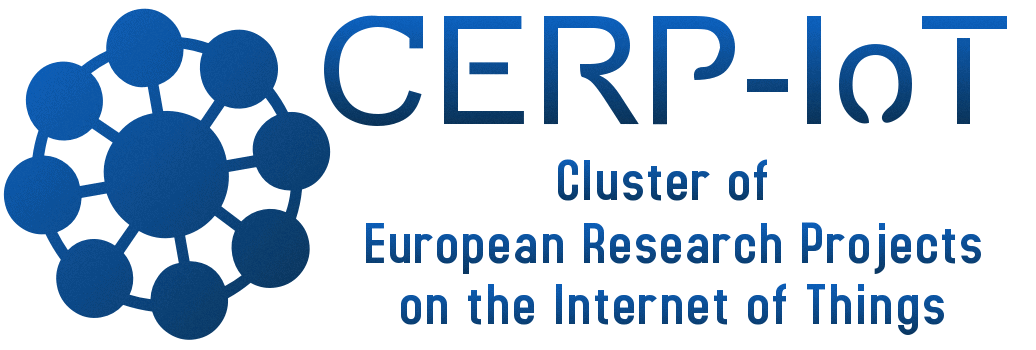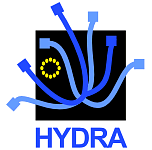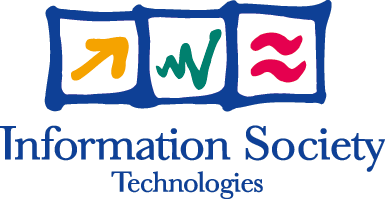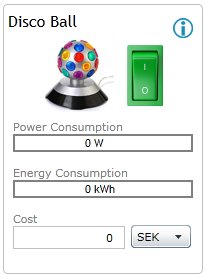Articles Hierarchy
Articles Home » Articles » Congratulations to the graduates who have participated in the Hydra project
Congratulations to the graduates who have participated in the Hydra project
Kristian Ellebæk Kjær, Participatory Middleware Design Experimental: Development of Semantic, Service Oriented, Context Aware Middleware for Ubiquitous Computing
Abstract:
In modern agriculture embedded and mobile computers are ubiquitous. Most modern machinery and control systems have an embedded computer as well as some form of remote administration interface.
Furthermore, a modern farm both produces and consumes a large amount of information, gathered from heterogeneous sources. This includes information pertaining to the daily running of the farm, as well as external information which may or may not be of importance to the individual farm, such as weather forecasts, market prices, and advisory information.
To manage this information efficiently, something better than current practice is necessary. One method for managing information is context awareness. If the current context of the farm and its workers is gathered, it can be used to determine what information is relevant in any given situation. To accomplish this, there are two major challenges: Collecting the context in a way that allows for aggregation and reasoning, and providing developers with appropriate abstractions for creating applications based on context.
To accomplish this, we need a context model and a middleware supporting both the gathering of context and building applications suitable for agricultural settings. For this, we explore the use of participatory design techniques in the design of middleware, the use of first class connectors as abstractions for coordination in service oriented architectures, and the use of semantic web technologies for modelling and accessing context and architecture description. We show that participatory design techniques lend themselves favourably to the design of middleware, how first class connectors are not only useful for middleware, but also for prototyping systems, and describe our use of semantic web technologies.
João Fernandes, A Development Environment for Pervasive Web Services
Summary:
The thesis investigated tool support for development of pervasive web services and included the development of a prototype Eclipse plug-in that allows the discovery and creation of UPnP devices and Web Service code generation. A module for UPnP device discovery discovers all the devices in the network available by the UPnP protocol and shows the information about these devices.
A simple way for developers to create new UPnP devices is also provided. Here, developers have to specify services´, operations´ and arguments´ names and types. All the code necessary to make the device available by UPnP protocol is generated, this includes a WSDL file that is given to Limbo, the web service compiler used in Hydra, for Web Service code generation.
João worked in the Hydra project from February 2008 to August 2009 as a Research Assistant. João is a Computer Science Engineer and he is currently working at the Center for Pervasive Healthcare at Aarhus University where he is involved in CareTech Innovation projects.
Morten Stærkær, Comparing Web Services and REST
Abstract:
The number of services offered through the WWW has been increasing as the popularity of the Internet has increased. SOAP based web services and REST are two different approaches to the development of services. SOAP is a standard for communication between client and server, and REST is an architectural style, used to describe the WWW amongst others. Although not directly compatible, since one is an architecture and the other is a style, both constitutes a valid basis for the development of web services. This master thesis compares SOAP and REST by making a qualitative as well as a quantitative comparison. The basis of this comparison is two systems developed for this purpose.
Lei Shi, Semantic Web Service Selection: Supporting Qualitity of Service and Context Awareness
Summary:
The thesis combines quality of service parameter with user preferences and context information, in order to better meet the user's requirements in the selection of web-services from a potentially large set. The work implements a selection algorithm in a software framework, which evaluates user-specified criteria against potential services properties. The implementation has been evaluated within a group of 15 participants in a user study.
Felix Dickehage, Aufbau dynamischer Speichersysteme auf Basis von p2p-Technologien / Dynamic Storage Systems based on P2P technologies
Abstract:
The thesis looked at data reliability as this becomes an important topic in consumer systems, as more and more personal data items, like photos or movies are stored in digital form. Nevertheless, many end users do neither have the infrastructure nor the knowledge to store this data in a reliable way. This thesis has developed a Hydra-based environment, which is able to combine multiple consumer storage devices to form a RAID-based, reliable end user storage.
Felix Steffen, Erfassung medizinischer Daten mit Bluetooth (Capturing Medical Data with Bluetooth)
Abstract:
The thesis describes a concept of how to capture medical data from a glucose meter or blood pressure meter connected via Bluetooth to a mobile device and how this data is transmitted to the Hydra middleware. As part of the bachelor work, this concept has been implemented and the results were demonstrated.
Abstract:
In modern agriculture embedded and mobile computers are ubiquitous. Most modern machinery and control systems have an embedded computer as well as some form of remote administration interface.
Furthermore, a modern farm both produces and consumes a large amount of information, gathered from heterogeneous sources. This includes information pertaining to the daily running of the farm, as well as external information which may or may not be of importance to the individual farm, such as weather forecasts, market prices, and advisory information.
To manage this information efficiently, something better than current practice is necessary. One method for managing information is context awareness. If the current context of the farm and its workers is gathered, it can be used to determine what information is relevant in any given situation. To accomplish this, there are two major challenges: Collecting the context in a way that allows for aggregation and reasoning, and providing developers with appropriate abstractions for creating applications based on context.
To accomplish this, we need a context model and a middleware supporting both the gathering of context and building applications suitable for agricultural settings. For this, we explore the use of participatory design techniques in the design of middleware, the use of first class connectors as abstractions for coordination in service oriented architectures, and the use of semantic web technologies for modelling and accessing context and architecture description. We show that participatory design techniques lend themselves favourably to the design of middleware, how first class connectors are not only useful for middleware, but also for prototyping systems, and describe our use of semantic web technologies.
João Fernandes, A Development Environment for Pervasive Web Services
Summary:
The thesis investigated tool support for development of pervasive web services and included the development of a prototype Eclipse plug-in that allows the discovery and creation of UPnP devices and Web Service code generation. A module for UPnP device discovery discovers all the devices in the network available by the UPnP protocol and shows the information about these devices.
A simple way for developers to create new UPnP devices is also provided. Here, developers have to specify services´, operations´ and arguments´ names and types. All the code necessary to make the device available by UPnP protocol is generated, this includes a WSDL file that is given to Limbo, the web service compiler used in Hydra, for Web Service code generation.
João worked in the Hydra project from February 2008 to August 2009 as a Research Assistant. João is a Computer Science Engineer and he is currently working at the Center for Pervasive Healthcare at Aarhus University where he is involved in CareTech Innovation projects.
Morten Stærkær, Comparing Web Services and REST
Abstract:
The number of services offered through the WWW has been increasing as the popularity of the Internet has increased. SOAP based web services and REST are two different approaches to the development of services. SOAP is a standard for communication between client and server, and REST is an architectural style, used to describe the WWW amongst others. Although not directly compatible, since one is an architecture and the other is a style, both constitutes a valid basis for the development of web services. This master thesis compares SOAP and REST by making a qualitative as well as a quantitative comparison. The basis of this comparison is two systems developed for this purpose.
Lei Shi, Semantic Web Service Selection: Supporting Qualitity of Service and Context Awareness
Summary:
The thesis combines quality of service parameter with user preferences and context information, in order to better meet the user's requirements in the selection of web-services from a potentially large set. The work implements a selection algorithm in a software framework, which evaluates user-specified criteria against potential services properties. The implementation has been evaluated within a group of 15 participants in a user study.
Felix Dickehage, Aufbau dynamischer Speichersysteme auf Basis von p2p-Technologien / Dynamic Storage Systems based on P2P technologies
Abstract:
The thesis looked at data reliability as this becomes an important topic in consumer systems, as more and more personal data items, like photos or movies are stored in digital form. Nevertheless, many end users do neither have the infrastructure nor the knowledge to store this data in a reliable way. This thesis has developed a Hydra-based environment, which is able to combine multiple consumer storage devices to form a RAID-based, reliable end user storage.
Felix Steffen, Erfassung medizinischer Daten mit Bluetooth (Capturing Medical Data with Bluetooth)
Abstract:
The thesis describes a concept of how to capture medical data from a glucose meter or blood pressure meter connected via Bluetooth to a mobile device and how this data is transmitted to the Hydra middleware. As part of the bachelor work, this concept has been implemented and the results were demonstrated.





 The Hydra project is co-funded by the
The Hydra project is co-funded by the 


